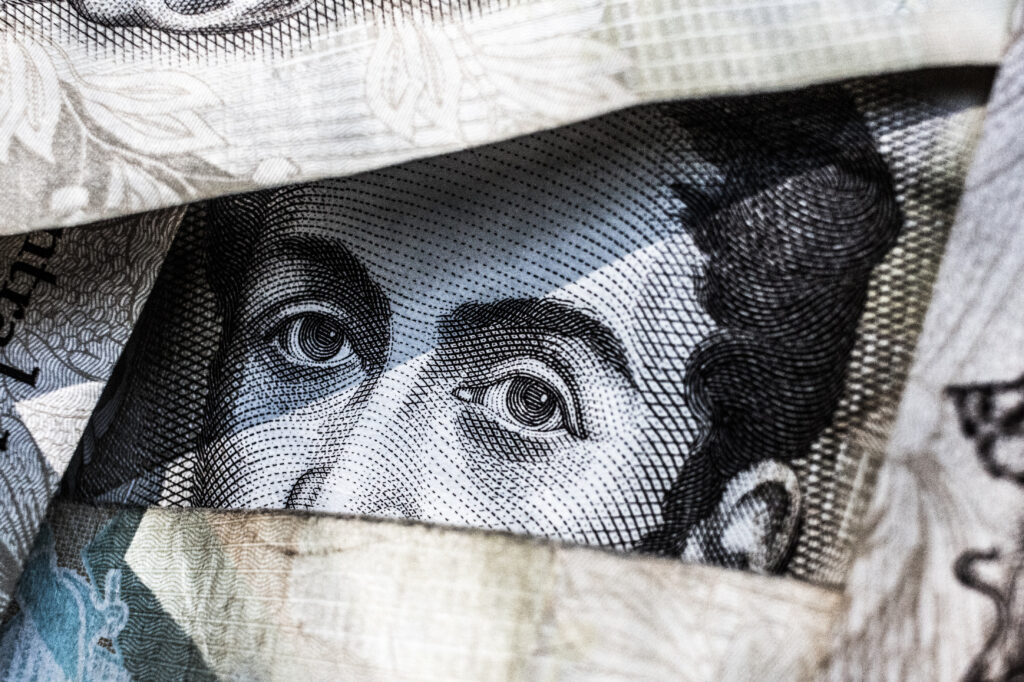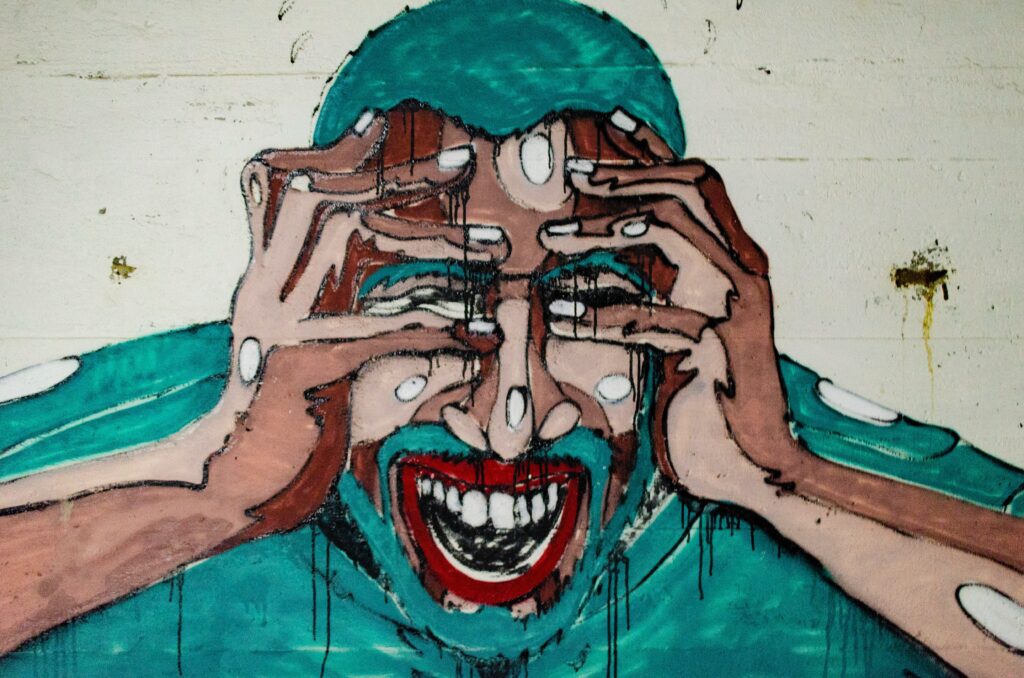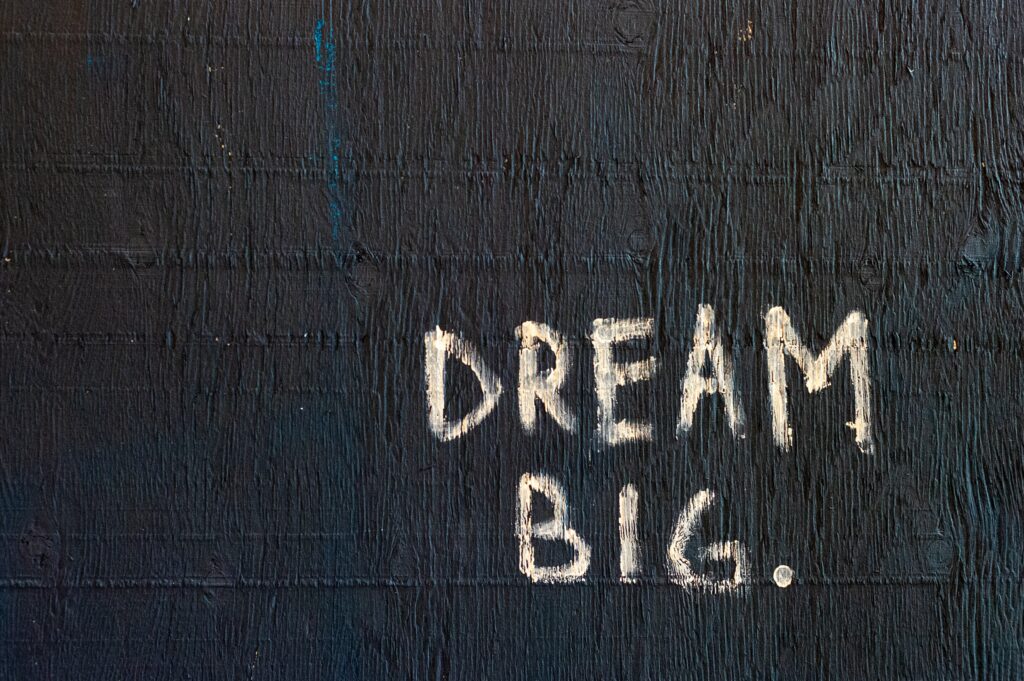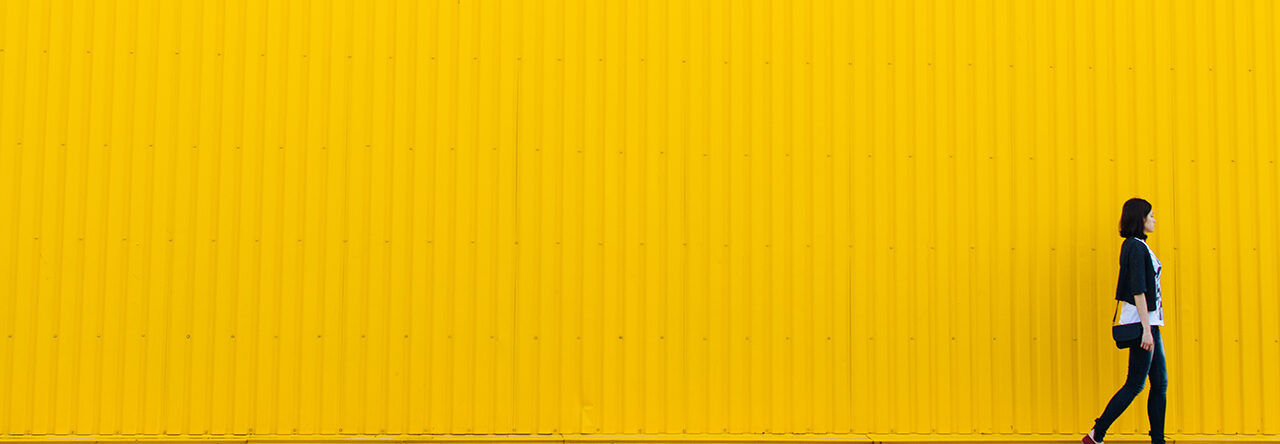Reading time: 13 mins
Talking about money is an awkward business, especially in the creative industries. We take pride in not being driven by monetary motivations. Many of the creative industries greatest achievements never would have seen the light of day had they been preceded by a profitability study.
But we also must make ends meet. Over time we either learn the hard way to think and act economically or we become victim to Darwin’s laws. But what if we wouldn’t have to worry about our basic economic needs? What could a Universal Basic Income (UBI) mean to the creative industries?
I have to get something off my chest first. I got fired up on the topic after watching the Netflix documentary “The Great Hack” about the Cambridge Analytica scandal.
While listening to the story of whistleblower Brittany Kaiser, I couldn’t help asking myself how a bright, well-traveled and highly educated person could fall prey to the dark side?

After all Brittany Kaiser once worked for Amnesty International, and she was part of Obama’s team during the presidential campaigns before taking on a job at Cambridge Analytica and putting her knowledge at the service of the Donald Trumps of this world.
In the documentary she got asked that very question by an interviewer: How did it happen? As a response she said: “They wouldn’t pay me”. According to her own explanation, she had to find a way to make ends meet when she had to support her family after her father fell ill. Hence, she switched from volunteering for the bright side to getting paid by the dark side.
Now you don’t have to believe this story. I admit I’m not quite sure myself. And even if it is true, challenging circumstances certainly don’t justify criminal and unethical activities.
But this “they wouldn’t pay me” infuriated me because it’s also an awfully true phrase for far too many people who honestly want to dedicate they creativity and their competences to good causes.

It’s the existential thread to all idealists, which most of us creatives are. But we desperately need those in our world and society.
Instead, our stance of devotion often gets abused. So often people, clients etc. imply that we creatives are expected be above petty materialistic interests. We are far too often asked to sell ourselves short or to even give our competences for free because it is for a “good” cause.
But merits for a good cause don’t pay the rent and they don’t put food in the fridge.
Nonetheless, our creative work is needed in many areas and it is true that those who would benefit the most often truly can’t pay much if anything at all (although I’m not sure that applies to presidential campaigns with a multi-million-dollar fund).
So, after getting the steam out of my system, let’s go back to my original thought: What could UBI mean to the creative industries?
Table of Contents
What talking about UBI often looks like
As I realized, talking about UBI can trigger some interesting and very opposing reactions.
- You can earn some appalled “SOCIALISM” screams, usually followed by a heated lecture about the decline of the world if such a stupid and disastrous idea would be put into practice.
- You might get an enthusiastic discussion about how the UBI is THE and only answer to the speedy and fundamental changes our world is taking in times of AI and globalization.
- You might get a pensive “Hmhm” before someone will share her thoughts about how this would be a cool idea but sadly completely unrealistic.
Because for generations most of us have learned the hard way that if you want it (shelter, food, …) you gotta work for the money to pay for it.
So, what is this ominous UBI about?

The UBI in shortcut
The British seem to be particularly committed to the topic, there are a number of organizations and websites in the UK where the principle of the UBI gets explained and promoted. The Sheffield UBI-Lab sums it up nicely:
The idea of a Universal Basic Income (UBI) – an amount of money paid to individuals on a regular basis, regardless of age, gender, marital status, work status and work history
UBILab Sheffield
The idea on the UBI is not new. Many historic and public figures in the past centuries have been pondering the concept. Amongst them
- the American revolutionary and political activist Thomas Paine (1737-1809)
- the British politician John Stuart Mill (1806-1873) who is considered one of the most influential liberal politicians and by the way was an early supporter of the right of women to vote
- the winner of the 1977 Nobel Memorial Prize in Economic Sciences James E. Meade (1907-1995)
But what would the UBI look like in practice? As the Britain based Citizen’s Basic Income Trust explains it would be:
‘Unconditional’
‘Automatic’
‘Nonwithdrawable’
‘Individual’ (not on the basis of a couple or household).
citizensincome.org
The discussion and support of a UBI increased during the past years because the impacts of technological change and Artificial Intelligence (AI) become more and more noticeable. In ten to twenty years many jobs will be gone due to automation and AI. But people will still have to make ends meet.
So, it comes as no surprise that a significant number of countries worldwide have been experimenting with the idea in the past decades as an illustrated map on the Website World Population Review shows.
If you want to go deeper into the topic I recommend reading the case for the UBI be the Royal Society for Arts, Manufactures and Commerce (RSA) and the website of the Citizen’s Basic Income Trust. They are both Britain based but give a general and well understandable introduction.
What the concept triggered in me first time I heard about it
- How many times have you turned down a great and meaningful job because you couldn’t afford to work for peanuts?
- How many times have economic worries and ponderings crippled your creativity?
- How many of your good and contributing ideas have never seen the light of day because you had to commit your time to work that would pay your bills?

I remember a conversation with a classmate a few years ago. She was working as a freelance dramaturge, doing theatre projects with kids in struggling neighborhoods.
It was probably a tremendously important job for the kids who got to take part in the projects. But I remember her exhaustion when describing how a major part of her time and energy went into fighting with administration for money and funding. I remember her bewildered description of how she and her colleagues – many of them had to care for kids and families – sometimes got fobbed off by institutions with a pittance that wouldn’t even allow a meager living.
My classmate herself is an immense workhorse and a no-moaning fighter so I remember well her desperate: “It’s humiliating.”
I also remember my own early days when I was fueled by enthusiasm and the desire to make a difference. I cared for contribution over money. But I also remember how every checking of the books was accompanied by an anxious twist in the tummy region. It’s consuming when you have to worry about how to pay bills.

I had many wonderful jobs during my years as a freelance journalist. I had the chance to leave an impact and make a difference. I helped to create awareness to causes that might have been forgotten otherwise. Many people got back to me to express their appreciation.
It was fulfilling, but it was not sufficient in an economic way. It was something I could do for a limited number of years during a period in my life where I didn’t have to take on substantial economical responsibility yet.
But I finally came to the point where I had to decide: Do I want to focus on making a difference? Or do I want to focus on building an economically stable life that would reliably cover my economic needs and support a family?
I too chose the latter.
But what if we wouldn’t have to choose?
What UBI could mean for the creative industries and for society
Maslow knew: Fundamental needs must be met before we can be creative
The creative mind is often prone to fear. Google alone produces 2.590.000 results for „Creative Anxiety“.
We are afraid…
- our work isn’t good enough
- others might have done it before or better
- the ideas might not come
- there will be no market for our ideas
But most importantly, we are afraid of not being able to pay our bills, our rent, our food in the fridge. This fear is existential, it’s toxic and it’s killing creativity.
In his famous five-level “Pyramid of Needs” the American psychologist Abraham Maslow (1908-1970) placed physiological needs like food, clothing or shelter and safety needs like financial security at the base of his theory.
These fundamental needs have to be met before something like creativity can develop.
But the reality in the creative industries often looks like this:
The creative proprocess takes time, space and energy. Trial-and-error is necessary to discover anything new, but this is a time-consuming luxury most of us can’t afford. Instead we’re forced to prioritise going to work [read: take on jobs that pay] and earning enough money to pay the bills.
Toby lloyd
Economic stress kills our creativity
Economic worries can put you in a constate state of fight-or-flight and over time, due to its plasticity, our brain changes.
Our lizard brain, the most primitive part of the brain, which is responsible for processing fear information, starts to grow. The hippocampus, the brain part where imagination is located, starts to shrink. This means, long-term stress is killing our creativity.

When our brain is paralyzed by economic horror-scenarios it’s unlikely you will come up with groundbreaking creative ideas. But that’s what the creative industries are about and live of – new ideas.
And believe me, pearls of wisdom in the range of “4 ways to overcome anxiety” or positive thinking, won’t do the trick.
To yell at your creativity, saying, ‘You must earn money for me!’ is sort of like yelling at a cat; it has no idea what you’re talking about, and all you’re doing is scaring it away, because you’re making really loud noises and your face looks weird when you do that.
Elizabeth Gilbert, Big Magic: Creative Living Beyond Fear
So, the answer in the post-modern, highly developed world of 2022 where we are all busy thinking future might well be: We find a way to eliminate these creativity killing fundamental fears.
Imagine a world where creativity could flow free of fundamental stress
Having our basic needs met by a UBI wouldn’t just make a difference for the creative industries. It could change the whole world.
A Universal Basic Income (UBI) would give us the resources we need to unlock our creative potential – both as individuals and as whole communities.
[…] it would give everyone access to the resources – time, space and energy – that are needed to explore creative ideas without the pressure for them to make money.
Toby Lloyd
But it would be a tremendous step forward for everyone who living depends on her creativity. To quote Toby Lloyd again:
Creativity is an attribute unique to human beings and developing our artistic talents should not be a luxury only a privileged few can afford. Only a Universal Basic income can unlock our individual and collective intelligence, and usher in a new Renaissance.
Toby Lloyd
The creative industries are where innovation often starts. We think of new ideas, methods, and approaches. We come up with concepts and ideas for the world of tomorrow. We help develop scenarios and solutions to create a better future.
But sadly, many great ideas might never see the light of day for economic reasons, because their originators couldn’t afford to spend time on the non-paying creative start-up-process.
Imagine what it could mean to Startups or creative Think Tanks if they could work free of fundamental pressure because they have the security of a UBI?
Imagine what it could mean to economy and society if the creative industries could develop their potential free from economic worries?
Many of the innovations and new approaches that started as a pipe dream in the creative industries now shape our daily lives.
Just think of AI or AR.
In the creative industries we provide the petri dish for developments which later get adopted by traditional businesses.
- A UBI could mean that we no longer have to prioritize our innovations and products according to their functional or potential market value.
- We could instead prioritize our work according to the benefits it might bring to society and the world in general.
Humanity also needs dreamers, for whom the disinterested development of an enterprise is so captivating that it becomes impossible for them to devote their care to their own material profit.
Marie Curie
As creatives we all want to contribute and change the world for the better. With a UBI we could all do so more freely.
How would the UBI impact your work?

You enjoyed this read? Consider subscribing and get informed when new articles get published. It’s free, I’m not going to spam you and you can leave whenever you want.
